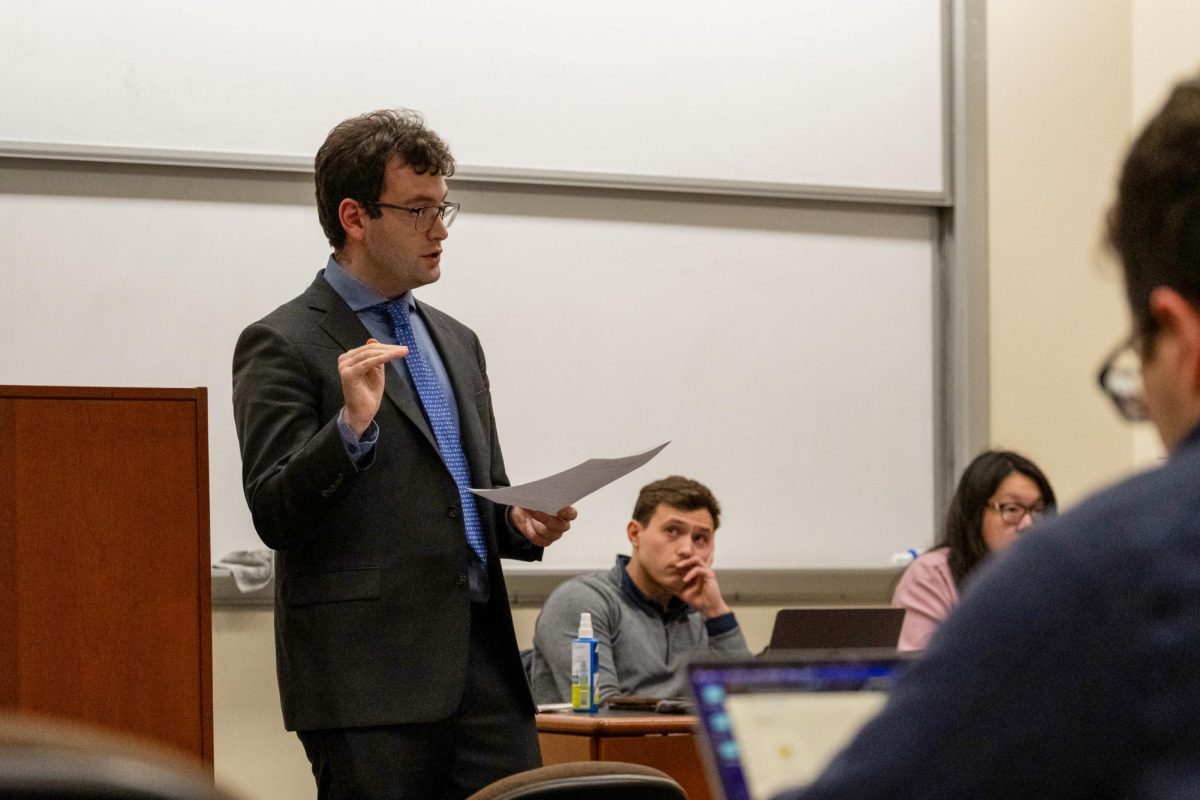Ben Vinson, who was named Columbian College of Arts and Sciences dean Monday and will start the job Aug. 1, discussed his experiences leading fundraising and research efforts in a 15-minute phone interview Tuesday. He will leave his post as vice dean for centers, interdepartmental programs and graduate programs at Johns Hopkins University to come to GW.

The 42-year-old is a Latin American scholar, specializing in African diaspora, and will earn a faculty appointment in the history department. He will take over for Peg Barratt, who started as dean in 2007.
The interview has been edited for length.
What about GW’s future plans made you want this deanship?
There are a lot of things. At this particular moment, I sense GW is really a place where interdisciplinary work is really important. My particular skill set and background has [made me] very involved with working with departments and with centers and programs to really think about questions of interdisciplinarity and how it relates to education on the graduate and undergraduate levels, and what that also means for faculty.
The international and global presence of GW also fits very nicely with my interest and areas of expertise as a Latin Americanist and as a Latin American historian, and as someone who was partly raised in Europe. I come from a military family, and my father was in the Air Force, and I lived as a child in Italy. Part of these international experiences are part of my roots, so those types of things that really leap out at me as a really opportunity.
And quite frankly, the things that are happening with the new science building – those are tremendous opportunities for growth and development of the sciences at GW and really nourishing the reputation of the sciences. That’s something I find very attractive.
As a humanities scholar, why are you a good fit to lead the college while the University is looking to elevate the hard sciences?
In the role that I occupy now as vice dean, I am responsible for a broad portfolio. There comes a moment in many administrators’ lives where you really transcend your own discipline and start looking broader at conversations across a school or university. That’s part of my job now as vice dean for graduate education, I oversee all programs, from physics and astronomy to literature, history and anthropology.
I’ve also worked closely with a program called Global Environmental Change and Sustainability, where people are bringing in the conversation units such as Earth and planetary sciences with political science and sociology.
Are there any specific practices you pitched that you’d like to bring over from Hopkins to GW?
It’s still early to kind of get into that level of detail because I still need to learn a lot more about the institution. There’s oftentimes a process, that I’m looking very much forward to engaging in, where one really gets a sense of the everyday culture and what practices are working now before coming in with something specific.
How do you hope to rally that support around your vision given that some GW deans have run into problems garnering faculty support?
I’m a future-driven person. What’s in the past is in the past. Of course any job candidate reads the headlines, but in our minds, we’re looking at where the institution can go, and how to get there in the most effective, in the best ways for the institution. That’s been my entire approach to the search process in the conversations I’ve had with faculty, students and that’s what I’m looking forward to, GW 2013 and beyond.
Another big responsibility for a dean is fundraising, which you will be spending at least 40 percent of your time doing. What experiences do you have in that area and what would you bring to that aspect of the job?
I’ve done some work with African studies and trying to raise funds there, and I worked extensively with the African American donor community with Hopkins. I’ve also worked in my role as vice dean for centers and programs trying to help certain centers receive money, working with our Latin American studies program as well. And so, I look forward to this process because at any institution, the dean’s role is pivotal in trying to attract donor dollars because those funds really are, in some ways, the lifeblood of the growing process for any institution.
It’s something I embrace and am looking forward to, because quite frankly, one of the things that also leaped out at me in a favorable way was the experience I had with alumni. You have quite an impressive group of individuals looking at GW in new ways.




